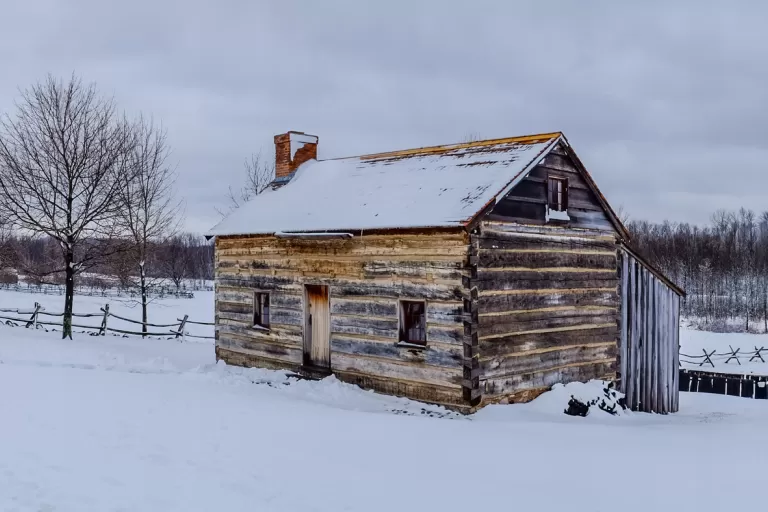
It was just before Christmas, 1835: Joseph went to a scheduled debate at the home of his brother, William. During the course of the evening’s events things got a little heated between the participants. Joseph commented that such behavior was not becoming of the men involved. William became angry, and then violent. It became a fight between the Prophet Joseph Smith and his enraged brother, William. In the end, Joseph was sorely injured, and the Smith family - torn into factions.
In the days that followed, letters passed back and forth between Joseph and William. It was in one of those letters, at the very end, that Joseph wrote this most tender prayer:
“And now may God have mercy upon my father’s house. May God take away enmity, from between me and thee, and may all blessings be restored, and the past be forgotten forever. May humble repentance bring us both to thee, O God, and to thy power and protection, and a crown, to enjoy the society of Father, Mother [&] Alvin.” (*1)
Joseph prays to be with Alvin in the eternities, and therein lies a beautiful story.
Alvin was the oldest living child of Joseph Sr. and Lucy Mack Smith. He was a noble and obedient son; faithful to his family, and his God. November 19, 1823, Alvin passed away suddenly, leaving his family shocked and stricken with grief.
“We all, with one accord wept over our irretrievable loss,” wrote Mother Smith, “and we could not be comforted, because he was not.”
At his funeral, many friends and neighbors paid their respects, not the least of which being the lovely girl Alvin had been engaged to marry. Alvin was much loved, respected, and missed. However, the minister who preached the funeral sermon intimated Alvin had gone to hell, because he had never been baptized. This comment deeply hurt the family, especially Joseph Smith Sr. It opened a wound in the soul of Joseph Jr. that he would carry to his latest days.
“I remember well,” he said, “the pangs of sorrow that swelled my youthful bosom and almost burst my tender heart when he died.”
Yet Alvin had died not baptized and not a member of any Christian Church. Would Alvin be saved or indeed was he everlastingly damned? From 1823 to 1836 this question must have torn at Joseph’s soul. His prayer that he and William could be together with Alvin in the next life represented a profound search for consolation.
Imagine then the joy of this night—January 21, 1836, on the third-floor, attic story of the Kirtland Temple, in Joseph Smith’s office. It is a night of glorious visions and heavenly manifestations for Joseph and many others. In the course of that night was one vision, perhaps more significant for more people than any other. Joseph said,
“The Heavens were opened upon us and I beheld the celestial kingdom of God, and the glory thereof, whether in the body or out, I cannot tell.”
Joseph witnessed the Father and Son enthroned in glory. He saw the ancient patriarchs, and then he said,
“I saw…my father and mother; and my brother Alvin that has long since slept.”
How could that be? In answer, the voice of the Lord came to Joseph,
“…all who have died without a knowledge of this Gospel, who would have received it if they had been permitted to tarry, shall be heirs of the celestial kingdom of God…. For I the Lord will judge all men according to their works, according to the desires of their hearts.”
Alvin represented all the righteous dead of all the ages. He would be saved! - They will be saved! Two months later the keys of Elijah were restored, and in Nauvoo on August 15, 1840, upon hearing the doctrine of baptism for the dead revealed, the weakened and enfeebled Father Joseph Smith Sr. requested that Alvin be immediately baptized, and it was done.
Christmas is the gift of a Savior who will save all men in all ages of the world that are willing.
Merry Christmas!
Story Credits
Source: The Alvin Smith Story: Fact and Fiction; Doctrine and Covenants 137
Glenn Rawson – December 2018
Music: "Where Are You Christmas" - Where Are You Christmas Songs
Song: “Son of God” – Paul Cardall & Patrice Tipoki
1. The Joseph Smith Papers: Letter to William Smith, circa 18 December 1835

